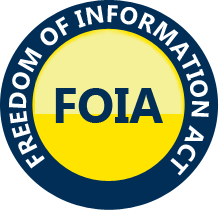
-
Does my dog need a license?
-
Any dog over four (4) months of age must have a county dog license, which is due annually. Sussex dog licenses consist of a receipt and a metal tag; both must be retained and shown upon request by law. License receipts should be kept where they are availoable for you to present them for inspection upon request of the Animal Control Officer. The tag must be securely fastened to a substantial collar worn by the dog at all times. Any dog found loose in the county not wearing a county tag (for that calendar year) will be considered a stray and impounded by animal control. Cats do not require a county license.
-
How do I get a dog license?
-
You may obtain a dog license from the Sussex County Treasurer's Office by presenting a current rabies vaccination certificate and paying the license fee. Tags may not be issued without proof that a licensed veterinarian has vaccinated the dog against rabies. You may also obtain it by mailing a copy of the certificate and a check to the Treasurer, at Post Office Box 1399, Sussex, Virginia, 23884.
-
When are dog licenses due?
-
Licenses may be purchased after november 1 and prior to January 31 for the following year.
License Fees:
- INDIVIDUAL DOG: $7.00
- 20 DOG KENNEL: $35.00
- 50 DOG KENNEL: $50.00
-
What do I do about an animal bite?
-
Rabies is a deadly disease caused by a virus. The rabies virus lives in saliva of its host animal. It can be transmitted through a bite, scratch, or a lick on a break in the skin, or in the eye or mouth. only mammals get rabies; birds, fish, reptiles, and amphibians do not. Skunks, raccoons, foxes, bobcats, groundhogs, bats, dogs, cats, and some farm animals (cows) are most likely to get rabies. Opossums, squirrels, rabbits, rats, and mice seldom get it. All animal bites involving humans must be reported to the Sussex County Health Department at (434) 246-8611 within 24 hours. If your animal is bitten by another animal (wild or domestic) you should confine it and report the incident to the animal Control at (434) 246-2167; if the animal does not have a current vaccination against rabies it will be quarantined for ten days at the owners' expense.
-
What can I do about a dead animal?
-
If unclaimed by the owner, dead animals on public roads are the responsibilty of the Virginia Department of Transportation (VDOT). Dead anmals on private property are the responsibility of the property owner and must be buried in a timely manner.
-
What do I do about dogs running at large?
-
First, try talking to the owner of the dog(s). If the problem continues, contact Animal Control and report the problem. Dogs are prohibited from running at large without their county license tag and rabies vaccination tag fied to a substantial collar secured around their neck. The Animal Control Officer is unable by law to take any action unless he witnesses the incident. Animal Control will attempt to resolve the situation using whatever legal remedies are available. Although the officer cannot take immediate action, the complainant can make an application for the violation at the Magistrate's Office.
Confinement Period
- No dogs may run at large on the Western part of the County from March 1-15 (Anually) (West of Route 35, Jerusalem Plank Road)
- No dogs may run at large on the Eastern part of the County from March 16-31 (Anually) (West of Route 35, Jerusalem Plank Road)
-
What if my dog is impounded?
-
If the dog displays identification, the owner, if possible, will be contacted and made aware of the impoundment. If your dog is impounded you may redeem it from the animal pound at 14493 Robinson Road, Stony Creek, Virginia. You must hae your identification (i.e. driver's license, state identification card, etc.), the dog's current license receipt and rabies vaccination certificate- the metal tags are not accepted. You will have to pay any impoundment fees incurred beginning the day it was impounded. If your dog does not have identification, law requires it to be kept five (5) days. If the dog has not been claimed at the end of five (5) days, it becomes the property of the county, and may be placed for adoption or otherwise disposed of. There is an impound fee of $10.00 and a boarding fee of $5.00 a day.
-
What if I want to give up my dog?
-
Owners may surrender their dogs at the animal pound free of charge during regular pound hours. You must complete a surrender form before the animal will be accepted. Bring the license, rabies certificate, and any other shot records you or your veterinarian may have.
-
Should I spay or neuter my pet?
-
Over 6-8 million dogs and cats enter animal shelters and pounds each year, and many more are left to fend for themselves or die out in the steets. Pet overpopulation is a tremendous problem, which can be solved if each of us takes the responsibilty of not allowing our animals to breed. Spaying and neutering is a big step towards a solution. Overpopulation leads to other tragic problems. Communities statewide spend millions of tax dollars each year to control unwanted animals. These surplus animals transform shleters and pounds into "warehouses" and create stree for shelter and pound workers who must care for them with liited resources, which are already stretched thin. There are simply more animals born each year than there are potential homes for them. Abandoned and stray animals pose a health threat to humans and other animals by destroying refuse containers, defecating in public areas, killing other wildlife, and spreading disease. The epidemic of dog bites (more than 4.5 million a year) can also be linked to uncontrolled breeding of pets; neutering helps to reduce aggressive behavior. Spaying or neutering is good for you and your pet. It helps pets live healthier lives by reducing a number of problems that are expensive to treat. It is good for you because your pet(s) will tend to have less behavior problems (i.e. biting, spraying, etc.). It is also good for the community.
Statistical Information:
- Number of cats and dogs entering shelter each year: 6-8 million (HSUS estimate)
- Number of cats and dogs euthanized by selters each year: 3-4 million (HSUS estimate)
- Number of cats and dogs adopted from shelters each year: 3-4 million (HSUS estimate)
- Number of cats and dogs reclaimed by owners from shelters each year: Between 600,000 and 750,000- 30 percent of dogs and 2-5 percent of cats entering shelters (HSUS estimate)
- Number of animal shelters in the United States: Between 4,000 and 6,000 (HSUS estimate)
- Percentage of dogs in shelters that are purebred: 25 percent (HSUS estimate)
- Average number of litters a fertile cat can produce in one year: 3
- Average number of kittens iun a feline litter: 4-6
- Average number of litters a fertile dog can produce in one year: 2
- Average nuber of puppies in a canine litter: 6-10
(Unless otherwise indicated, statistics provided by The National Council on Pet Population, Study and Policy.)
-
Hunting Dogs & Hunters
-
Sussex County, as a rural community, enjoys a rich sporting heritage. These traditions include the practice of the use a various breed of dogs to hunt game, from birds to large mammals. The practice of "pack hunting," the use of a large number of dogs to hunt game, is common throughout the county. Seasons for deer and rabbit span from November to February. Hunters may use dogs during seasons where not prohibited. Hours are from one half-hour before sunrise to one half-hour before sunset. When the chase begins on other lands, fox and racoon hunters may follow their dogs on prohibited lands to retreive their dogs, but MAY NOT CARRY FIREARMS on their persons or hunt game while on that property. the use of vehicles to retreive dogs on prohibited lands shall be allowed only with the permission of the landowner.
Physical Address:
14493 Robinson Road
Stony Creek, Virginia 23882
Mailing Address:
Post Office Box 1397
Sussex, Virginia 23884
Office Hours:
8:00 a.m. to 5:00 p.m.
Public Hours:
1:00 p.m. to 5:00 p.m.
Phone:
(804) 898-5371
Fax:
(434) 246-2790









 Made in the U.S.A.
Made in the U.S.A.